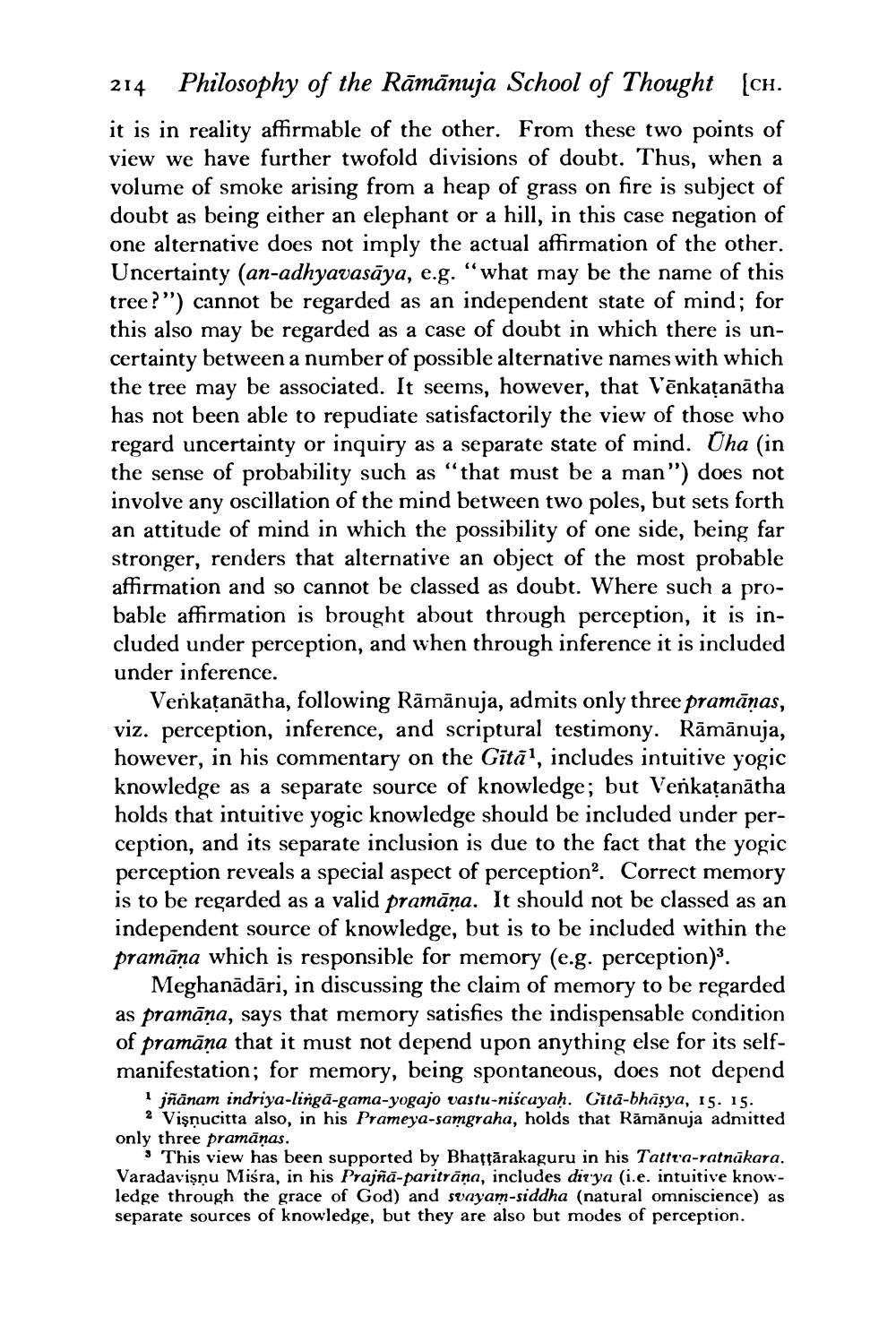________________
214 Philosophy of the Rāmānuja School of Thought (ch. it is in reality affirmable of the other. From these two points of view we have further twofold divisions of doubt. Thus, when a volume of smoke arising from a heap of grass on fire is subject of doubt as being either an elephant or a hill, in this case negation of one alternative does not imply the actual affirmation of the other. Uncertainty (an-adhyavasāya, e.g. "what may be the name of this tree?”) cannot be regarded as an independent state of mind; for this also may be regarded as a case of doubt in which there is uncertainty between a number of possible alternative names with which the tree may be associated. It seems, however, that Vēnkațanātha has not been able to repudiate satisfactorily the view of those who regard uncertainty or inquiry as a separate state of mind. Üha (in the sense of probability such as "that must be a man") does not involve any oscillation of the mind between two poles, but sets forth an attitude of mind in which the possibility of one side, being far stronger, renders that alternative an object of the most probable affirmation and so cannot be classed as doubt. Where such a probable affirmation is brought about through perception, it is included under perception, and when through inference it is included under inference.
Verkațanātha, following Rāmānuja, admits only three pramānas, viz. perception, inference, and scriptural testimony. Rāmānuja, however, in his commentary on the Gitāl, includes intuitive yogic knowledge as a separate source of knowledge; but Venkațanātha holds that intuitive yogic knowledge should be included under perception, and its separate inclusion is due to the fact that the yogic perception reveals a special aspect of perception?. Correct memory is to be regarded as a valid pramāna. It should not be classed as an independent source of knowledge, but is to be included within the pramāna which is responsible for memory (e.g. perception).
Meghanādāri, in discussing the claim of memory to be regarded as pramāna, says that memory satisfies the indispensable condition of pramāna that it must not depend upon anything else for its selfmanifestation; for memory, being spontaneous, does not depend
i jñānam indriya-lingā-gama-yogajo vastu-niscayaḥ. Gita-bhâsya, 15. 15.
2 Vişnucitta also, in his Prameya-samgraha, holds that Rămănuja admitted only three pramānas.
* This view has been supported by Bhattārakaguru in his Tattra-ratnākara. Varadavisnu Misra, in his Prajñā-paritrāna, includes dir'ya (i.e. intuitive knowledge through the grace of God) and svayam-siddha (natural omniscience) as separate sources of knowledge, but they are also but modes of perception.




